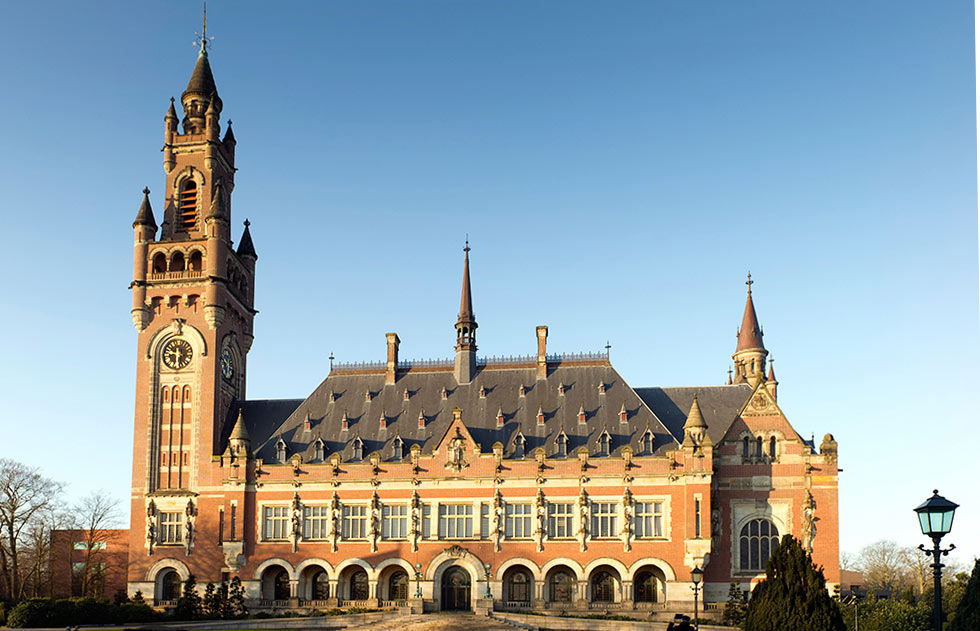State Sovereignty vs International Law
- treatiesandtrials

- Jul 28, 2025
- 2 min read
In a world where all nations are “sovereign”, it seems almost impossible to uphold an international legal system. So how does the UN take on international law as the world’s largest intergovernmental organization? The answer seems quite simple: through the International Court of Justice. This court takes on cases between countries and tries them. While this principle UN organ has solved disputes between many nations over the years, it also has its faults.

What is the International Court of Justice?
The International Court of Justice (ICJ) is one of the UN’s six principle organs or constituents. It administers international law between countries in a formal setting, located in the Netherlands. Since its establishment in 1946, the court has taken on 200 cases between a variety of states. The ICJ is distinct in that it only hears cases between countries (who consent) and does not try individuals.
Where Does State Sovereignty Come Into Play?
After the ICJ delivers a verdict, the court must trust that the parties adhere to it, even though the verdict is binding. Technically, the UN has no way to enforce the outcome, but according to Article 94 of the UN Charter,
“If any party to a case fails to perform the obligations incumbent upon it under a judgment rendered by the Court, the other party may have recourse to the Security Council, which may, if it deems necessary, make recommendations or decide upon measures to be taken to give effect to the judgment.”
In all, the need to uphold state sovereignty makes it difficult to ensure a country does what it’s asked to do. Luckily, most countries honor the verdict and revise their obligations. However, when a country decides not to comply, it can be disastrous, as seen by Israel’s recent actions despite the ICJ’s court order in 2024 to take measures in stopping genocide and providing humanitarian aid.
Why This Matters to You
It is important to understand why wars take place and why they can’t be easily stopped. Our generation is growing up witnessing conflict all over the world, and there isn’t an easy explanation as to why this is so. Online, genocide is criticized and debated and yet it doesn’t stop. There are numerous reasons as to why atrocities proceed, and for one, knowing that there is a system that fails to prevent it can feel disheartening. At the same time, the ability to analyze international law and its cooperation-based nature is the first step towards change.





Comments